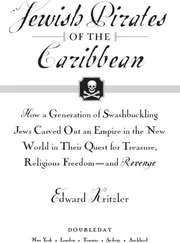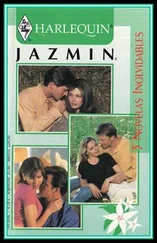“And Dinah the daughter of Leah,… went out to see the daughters of the land.
“And when Shechem the son of Hamor saw her … he took her.” And, the commentary added, “Shechem persuaded her.”
Rochalle went on reading from the Bible which Dvossa-Malka had given her for a present before she was married. She forgot, by degrees, that she was reading. Her imagination took hold of the story, and her thoughts wandered off, carrying her away towards Stempenyu, to the Monastery Road, under the beech trees, where he promised to wait for her… He was surely waiting there.
No sooner did Stempenyu come into her mind than she felt drawn towards him, as if he were a magnet and influenced her movements. She did not understand her own heart, and her own weakness.
“I should like to ask him only this,” she repeated a dozen times, for her own personal satisfaction. “I should like to know what I am to him that he should bother me in this way. What does he want of me?”
And, again Rochalle remembered her comrade, Chaya-Ettel — peace be unto her! And all that she had suffered through the falseness of Benjamin…
But, Benjamin had been Chaya-Ettel’s own cousin and foster-brother; and, at the time when she fell in love with Benjamin, she was not married, neither was he. Whilst she, Rochalle, was another man’s wife when Stempenyu came into the road; and, he too was married. Oh, how terrible it was to knock up against such hard facts as these! She shuddered at the thought of them.
And he, Stempenyu? He was no more than a wandering musician. Why did he get in her way? What was he to her that he should write her letters? Surely, he had no right whatever to do any such thing. The cheek of him — the cheek of that good-for-nothing!
“If the world were to turn upside down,” she said to herself repeatedly, “if the world were to turn itself upside down, I must see him, and must tell him what I think of him. Why should I be afraid of him? I will see him — I will see him without fail. No one will see me. I will steal out for a minute. It is not far. It is only over the road. I shall be home again before they miss me.”
And, Rochalle looked through the open window, on the Monastery Road, and saw the trees — the tall beeches and poplars as they stood erect in all their pride and glory. And, she heard the songs of the birds that had their nests in the branches. How beautifully they sang from out the garden! Rochalle’s fanciful thoughts, her fantasies, went out yonder, where, in an hour, or perhaps less she would talk to Stempenyu and see him, eye to eye. And, she felt her heart beating wildly within her. She was breathing heavily, as if a great struggle were going on within her. And, the truth — the truth must be told — was that the minutes were terribly long to her. She could hardly contain herself. She wished that it were evening already. She counted the minutes until her father-in-law and her husband came back from the evening prayer at the synagogue, and when her mother-in-law would change her Sabbath dress for her everyday one, and begin to fuss around the somovar , and heat the oven, to make the great Saturday night supper, at which there were always a houseful of visitors. Then would come the moment when she, Rochalle, would throw a shawl about her shoulders and steal out, quietly, through the door, and into the street, as if she were going for a walk. Who would notice that she was going to—? Where? Her limbs trembled and her cheeks were aflame. And her heart? Oh, her heart was almost throbbing out of her body. As the minutes went by, she felt herself being drawn more and more to the spot where Stempenyu was waiting for her, until she could think of no one and nothing else.
She did not see what lay about her. She saw only the trees of the monastery garden — only Stempenyu with his great blazing eyes like two living coals. She heard nothing. The murmur of voices about her did not reach her. She was listening to an imaginary sound — to the sweet melodies that came forth from the little fiddle, at the touch of Stempenyu’s hand.
Rochalle was entirely filled with one desire — to see Stempenyu and to be near him. She thought only of him.
And, she felt that there was nothing in the whole world which could hinder her, or prevent her from carrying out what she wished to do from the very bottom of her heart — from going to meet Stempenyu.
XXIII THE FIRE BURNS BUT IS SOON EXTINGUISHED
No sooner had the dusk fallen, than Stempenyu hurried off with his orchestra to play for a special dance which a number of the girls of the village were getting up in honour of one of their comrades who was about to get married in a few days. He took his fiddle under his arm so that Freidel might be led to think that he, too, was going to play at the dance. The moment he was out of sight of the house he gave his fiddle to Michsa Drummer, and betook himself in all haste to the Monastery Road, where he walked up and down under the shadow of trees. He looked about him carefully every few minutes, in the direction in which the beautiful Rochalle lived. That she would come he never doubted in the least. Every nerve in his body thrilled at the prospect of her coming; and, he had seen it plainly in her eyes at the time when he had met her in his own house, whither she had come to buy corals of Freidel.
Stempenyu was not mistaken. No more than a quarter of an hour after he had arrived on the scene, his eyes fell on the figure of a woman on the other side of the street, gliding along rapidly, and turning around now and again to see if there was no one in sight. She wore a white shawl over her head and shoulders, and drawn down so tightly until it almost covered her eyes as well. Her hands were trembling and her teeth were chattering, and her heart within her bosom was palpitating wildly. Her whole body was as in a fever. When she came near to Stempenyu she looked hard at him before she stopped. The next moment she was beside him, crying out: “Where did you get the impudence? How dare you?”
“Don’t say ‘you,’ Rochalle; say ‘thou,’ ” answered Stempenyu, as he took hold of her two hands, and fixed his black eyes on her blue ones. Rochalle noticed that his eyes had in them exactly the same sort of glitter as the stars that were looking down at them from the blue vault of the heavens, through the balmy evening air.
All the Jews of the village were now singing the Saturday evening’s “Elijah,” and sighing after the usual fashion. The were thoughtful and abstracted, worrying their heads, once again, after the day’s respite, over the problems of their livelihood, and wishing they had the good luck which had once attended a Jew who had come face to face with the dispenser of all good — Elijah the prophet, who had wished the Jew peace himself, in answer to the Jew’s greeting of “Peace be unto you!”
The women had already taken off their Sabbath caps and gowns and ornaments, and had betaken themselves to their ordinary tasks. In a word, the whole village of Tasapevka was speeding the parting guest — the Holy Sabbath. And, no one dreamt that that in the same hour, Rochalle, Dvossa-Malka’s daughter-in-law, was keeping a clandestine appointment with the musician Stempenyu on the Monastery Road, and that they were holding a conversation which was miles removed from Jewishness and Judaism. But, the bright stars that were looking down, and the tall trees that grew in the garden, and the night birds that had their nests in the trees and were calling to each other in a language of their own — these knew, and heard, and saw everything. They alone knew that on this enchanting night, under the monastery trees, on the street of the Gentiles and by the side of Stempenyu, Rochalle found herself in an entirely new situation — so much so that she had forgotten everything about herself, who and what she was. Here in the delicious fragrance of the night, and surrounded by the stillness of Mother Nature herself, Rochalle felt as she had never felt before in all her life. The terror which had fallen upon her in the first moments had now left her completely, and in its place she experienced the curious feeling that she had somehow developed wings, and that she was free, and might lift up her wings and fly if she wished it.
Читать дальше












